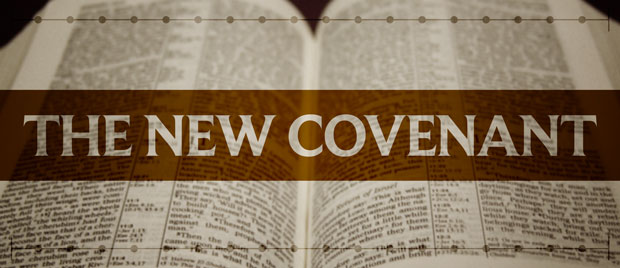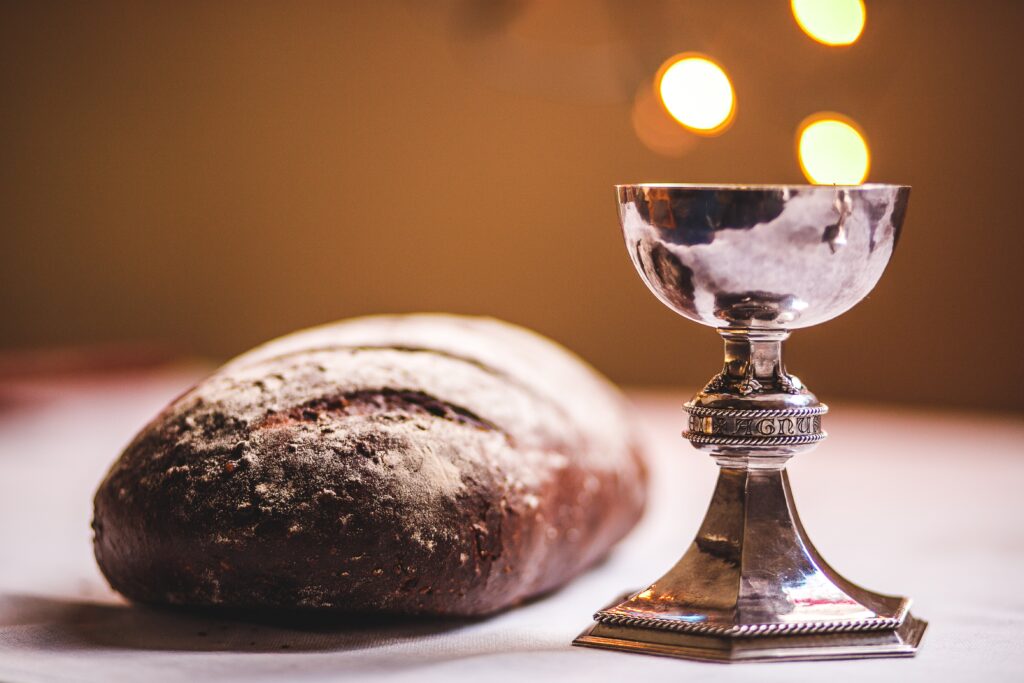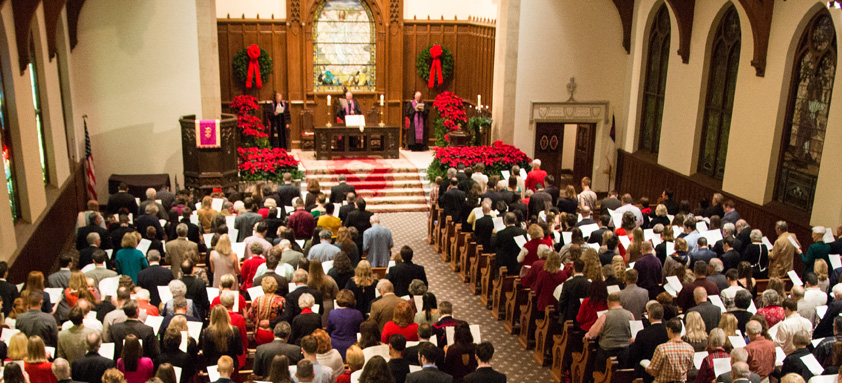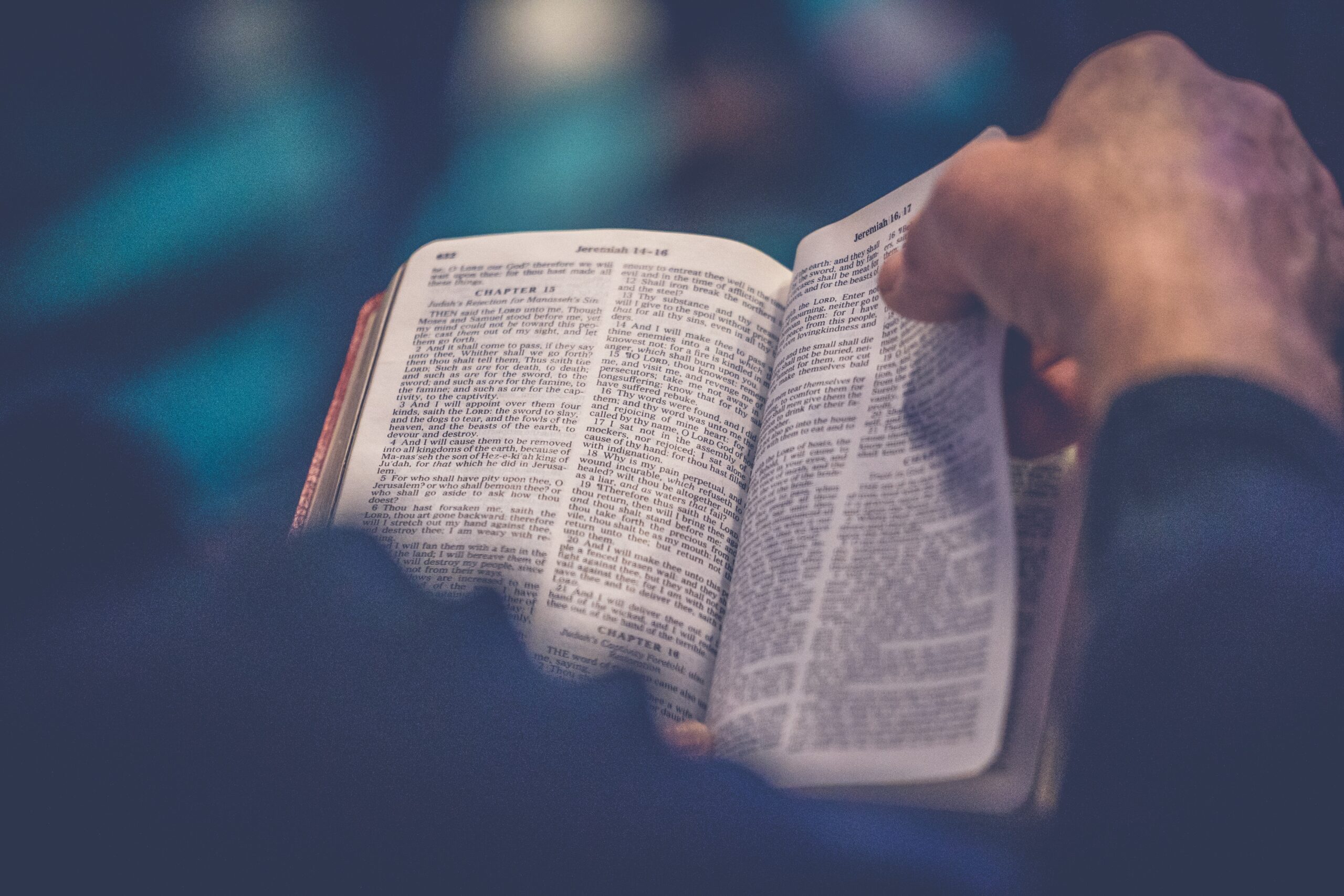Introduction
Some days ago, some of my Whatsapp contacts were heartily posting on their Whatsapp status links to an article by Reno Omokri that argues that Christians should keep the seventh-day Sabbath.
In fact, a friend saw the article as evidence that God still has many people outside of the Seventh-day Adventist church that he is going to bring inside – a popular misinterpretation of John 10:16 (By the way, John 10:1-18 is about Jesus bringing in his elect –those the Father has given to him – who are still in the world [not those already in the church] to faith so they can be part of his flock – the church, not a denomination).
But let’s leave the erroneous eschatology of the Seventh-Day Adventists and focus on Reno Omokri’s article.
Has Reno provided a water-tight argument for the seventh-day Sabbath? Should we all stop going to church on Sunday, start going to church on Saturday, and (given that the Sabbath was primarily a day of rest – Exodus 20:8-11) stop doing any kind of work on Saturday (including cooking, by the way – Exodus 35:3)?
Let’s see.
(Since this is a response to a specific article, it won’t cover everything relevant to the overall Sabbath discussion, but it contains enough to show the article’s errors).

Following Christ’s example? Why not be consistent?
Reno begins by showing that following Christ is what it means to be a Christian.
He correctly argues that Christ is the fulfillment of the Old Testament (“Judaism, which is a set of Mosaic laws, was to continue until the coming of the Messiah, and after that it was to collapse as a religion, into whatever the Messiah taught”) and Christianity was known in the apostolic age as “the Way” (Acts 9:2, 18:26, 19:9, 22:4, 2 Peter 2:2).
So far, so good.
Reno concludes from the two facts above that since Christ kept the seventh-day Sabbath, Christians following “the Way” should do the same. “And in His earthly lifetime, Christ obeyed that law and made the Sabbath Day His day of formal worship,” he said. “We see this in several verses of Scripture including Luke 4:16: “As His custom was, he went into the synagogue on the sabbath day.”
His basic argument here is that the Christians should watch what Christ did in his earthly life and just do the same.
The first problem with that thought is that Christ did many things in addition to Sabbath-keeping, which Christians, including Sabbatharian, don’t do today. Jesus kept the Festival of Dedication (John 10:22), the Passover and the Feast of Unleavened Bread (Mathew 26:17-18, Luke 2:41), and the Feast of Tabernacle (John 7:37). He attended the Jewish temples and synagogues (Mathew 21:23, Luke 4:16) and paid the temple tax (Mathew 21:12). He told a man to make a sacrifice in keeping with the sacrificial laws of the OT (Luke 5:14).
Jesus was circumcised as a religious act (Luke 2:21) eight days after his birth, and he was taken to the temple for the purification rites required by the Law of Moses (Luke 2:22).
To insist that all of the above are invalid (when Christ did them) and argue that the Sabbath is still valid because Christ did it is illogical and inconsistent. If following Christ means doing everything he did, then why not be consistent?
Jesus as a Jew and the new age dawning
Jesus came to the earth as a Jew, which means he was born under the law (Galatians 4:4). Jesus obeyed all God’s commands that applied to him as a Jew in first-century Palestine.
But within his ministry, he already gives us tips that a whole different administration is already dawning.

In Mathew 9:14-17, he informed the disciples that though they had no need to fast because he was with them, a time would come when they would fast – after the bridegroom (Christ) has been taken from them.
He then used the metaphor of wine and clothing to describe this dramatic change that is dawning.
“No one sews a patch of unshrunk cloth on an old garment,” and “neither do people pour new wine into old wineskins.” People have to pour new wine into new wineskins. There is a newness of time dawning with Jesus’s administration that will require a departure from some old ways.
Secondly, we see Jesus using his last Passover as a springboard to establish the Lord’s Supper.
The wine represents his blood; the bread his body. The disciples are to drink his blood and eat his flesh in remembrance of his death (Luke 22:13-19). The focus is no longer on the Passover but Christ. He did something similar when he stood up during the Feast of Tabernacle and invited all who are thirsty to come to him and drink (John 7:37).
Thirdly, John declared that Jesus was the Lamb of God sent into the world to take away its sins (John 1:29). Jesus reminded the disciples that he came to serve and that his service will culminate in his substitutionary death (Mark 10:45). Jesus took their eyes away from the sacrifices in the temple to himself.
Fourth, Jesus told the disciples that the temple itself (the center of Jewish religious life) would soon be destroyed (Mathew 23:38-24:2). Jesus departed from it and called it their house. When he died on the cross, the temple’s veil was torn into two, and the Most Holy Place was opened.
To read all of these (leaving the NT epistles and Apocalypse aside) and think that those living post-Christ are supposed to live the same way as those living while Christ was inaugurating this new age is simplistic, and it betrays a lack of desire to engage with the reality of what Christ accomplished.
To summarize, Jesus was a Jew, and he lived as a Jew. Jesus introduced a new age that began to dawn in his earthy life, came into sharper focus after his death and resurrection, and was firmly established among the new community after the destruction of the temple in AD 70.
Expecting new covenant people (people of the new age) to go to the old age and imitate everything Christ did while living in the old age and inaugurating the new is unbiblical. And people who preach this are as inconsistent as they are simplistic.
Exodus 20:8 and the Sabbath commandment
Reno did not quote Genesis 2:1-3, but a brief comment about it is necessary since many people do.
Many people argue that the Sabbath is a creation ordinance because its observance began in Genesis 2. However, you will struggle to find any Sabbath command in Genesis 2:1-3. It was God that rested in Genesis 2:1-3, not Adam. “By the seventh day God had finished the work he had been doing; so on the seventh day he rested from all his work” (verse 3).
There is no single command (imperative) in Genesis 2:1-3.
When God blessed the seventh day and made it holy, there was only one explanation for his actions: “because on it he rested from all the work of creation that he had done.” Why did God bless the day and made it holy? Because it was a holy day for Adam? Nah! Because God himself rested on that day.
The author of Hebrews also made it clear that it was God that rested from his works on the seventh day of creation (Hebrews 4:10) and that in the new covenant, we imitate God’s rest by putting our faith in Christ (verses 1-6).
The Hebrew word for Sabbath, “Shabbath,” did not appear in Genesis 2:1-3 or any text in Genesis.
In fact, the first appearance of that word is in Exodus 16 (verses 23-29), when Israel left Egypt and was on her way to the Promised Land. It was during this manna event that we see the first record of people keeping the Sabbath. And those people were Jews, on their way to becoming God’s covenant people.
When they got to Sinai, God finally made a covenant with them and constituted them as his covenant people (Exodus 19).
The Ten Commandments are designated in the OT as the words of the covenant (Exodus 31:18, 34:28, Deuteronomy 4:13, 9:9-15, 1 Kings 8:9, 21). The NT agrees that the Ten Commandments were the engraving of the Mosaic ministry and covenant (2 Corinthians 3:7). The ark where the tablets of stone were kept is described as the “ark of the covenant” (Numbers 10:33, 14:44, Deuteronomy 10:8, 31:9, et al.).
God did not give the Ten Commandments as a universal moral law (a body of law) that summarizes all of his moral commands for all ages. Nowhere in the Bible are the Ten Commandments described in this way.
Rather, the Ten Commandments as a body of law were the words of the specific covenant God made with a specific people – the summary of the Mosaic Covenant.
We can also see this in the preamble to the commandments. The preamble is typical of suzerain treaties of the Ancient Near East (ANE). The suzerain describes the history of his relationship with the vassal by rehashing all he did for him. That history of goodness towards the vassal becomes the basis for the suzerain’s claim on the vassal’s obedience.
Therefore, the Ten Commandments opened with “I am the LORD your God, who brought you out of Egypt, out of the land of slavery” (Exodus 20:1).
It’s impossible to remove this indicative from the resulting imperatives; it is the foundation of the covenant. The covenant responsibilities that follow belong to those that God has redeemed from Egypt. As the words of the covenant, the Ten Commandments did not start in verse 3 but verse 2.
This covenant, worded in the Ten Commandments, was for a specific people – the people God brought out of Egypt. And the Ten Commandments were only a summary of the requirements of that covenant. There was also the book of the Covenant (Exodus 24:7) and many other commands in the Mosaic Law.
That these other commandments were not inferior to the Ten Commandments is evident.
When the NT writers look back to the OT, they describe every type of law, wherever they are found, as the law of the Lord. The law about the redemption of the firstborn is the law of the Lord (Luke 2:27), as are the judicial laws (Acts 23:3). Everything in the Torah is the law of God (1 Corinthians 14:34 cf. Genesis 3:16, Romans 7:7 cf. Exodus 20:12, Mathew 22:36 cf. Deuteronomy 6:5, Leviticus 19:18, Mathew 12:5 cf. Numbers 28:9).
For the Jew under the covenant, all the covenant laws were God’s laws for which he owed a duty of obedience.
When Jesus summarized all the law and prophet, he selected two commands outside of the Ten Commandments (Deuteronomy 4:6, Leviticus 19:18) – love for God and love for neighbor (Mathew 22:34-40). He didn’t point to the Ten Commandments as the universal moral law.
And it won’t do to say those two commandments are the summary of the Ten Commandments; Jesus didn’t say so. He said they summarize all the law and the prophets (Mathew 22:38-40).

The Sabbath as a seal of the covenant
The Sabbath commandment is one of the Ten Commandments (Exodus 20:8).
Here, God commanded Israel to remember the Sabbath by keeping it holy. Many people argue that the word “remember” means it was a pre-existent command. The word “remember” as used in the OT and NT is not always backward-looking (John 15:20, Luke 17:32, Job 36:24, 1 Samuel 1:19, Hebrews 13:23, Psalms 106:4, among others).
Even if it was backward-looking, it does not extend beyond Exodus 16, where the concept of Sabbath rest was first introduced.
In verse 11, we see that the Sabbath command was patterned after God’s creation. This again confirms that Genesis 2:1-3 says nothing more than “God rested.” It was not until Exodus 20:11 that his rest in Genesis 2 now became a pattern for the people he is making a covenant with – the people he redeemed from Egypt.
That the Sabbath is tied to this Mosaic covenant can be shown in two ways.
First, in Deuteronomy 5:12-15, the Sabbath commandment was specifically tied to the Exodus. “Remember that you were slaves in Egypt and that the LORD your God brought you out of there with a mighty hand and an outstretched arm. Therefore, the LORD your God has commanded you to observe the Sabbath day” (Deuteronomy 5:15).
The second way to show this unbreakable connection is that the Sabbath is described in the OT as the seal or sign of the Mosaic covenant (Exodus 31:13, 17, Ezekiel 20:12, 20). Therefore, as the sign/seal of the covenant, it was right at the heart (in the middle) of the words of the covenant (the Ten Commandments).
The OT does not introduce the Sabbath to us as a universal moral law, but as the sign of the Mosaic covenant, a covenant made with the people God rescued from Egypt.
The end of the covenant
That this Mosaic covenant, of which the Ten Commandments were the words and the Sabbath the sign, is no longer applicable is too evident to be missed.
Remember that new age that Jesus was inaugurating by pointing people from the OT feasts, temple, and sacrificial system to himself? That new age dawned with the New Covenant, and it marked the end of the Old Covenant.
The author of Hebrews tells us that the first covenant (the old covenant) became obsolete with the inauguration of the New Covenant. “By calling this covenant ‘new,’ he has made the first one obsolete; and what is obsolete and outdated will soon disappear” (Hebrews 8:13).
A chapter before, he told us that the old (Mosaic) covenant law, upon which the priesthood was based, must change (Hebrews 7:12). If a priest can come from Judah contrary to the Mosaic Law (which insisted it must come from Levi), then the whole Mosaic Law needs to change with the new priesthood.
Should someone argue that the Ten Commandments as a body of law somehow transcends this obsoleteness, Paul reminds us that the Ten Commandments are the words of the covenant itself.
After describing the Ten Commandments as the engraving of the old covenant (2 Corinthians 3:6, 7), he says that the new covenant has eclipsed that old covenant in glory (verses 8-11) because the glory of the latter was transitory. In fact, in light of the new covenant, the old covenant engraved in the Ten Commandments has no glory now. The old covenant was temporary (verse 11). Now everyone must turn to the new covenant with its abounding glory.
Notice that when Paul argues the obsoleteness of the old covenant, he specifically referred to the Ten Commandments engraved on stone. He didn’t pick the feasts or the sacrificial laws or the judicial laws; he went straight at the very words of the covenant – the Ten Commandments engraved on stone. There is no old covenant without the Ten Commandments; they are the words of the covenant. If the covenant is obsolete, so are the words of the covenant engraved in stone. The Ten Commandments as a body of law and the words of the covenant have no more glory now.

Does this mean that people can now kill because the Ten Commandments are no longer valid as a body of law? No! The Ten Commandments contain some universal moral laws. But the Ten Commandments as a body of law is not the moral law. There are moral laws in Genesis, in Leviticus, in Deuteronomy, in Mathew, Philippians.
God’s moral laws are not dependent on the Ten Commandments. His moral laws are everywhere in the Scriptures. There is nowhere in the OT or the NT where the Ten Commandments are called the moral law. If Exodus 20 never existed, it would not mean that there won’t be moral laws. All the moral laws in the Ten Commandments are also in the NT, and many of them are in different parts of the OT canon.
In fact, Paul insists that even the Gentiles have God’s moral laws on their hearts (Romans 2:12-16). They don’t have Scriptures, but their conscience bears them witness.
The uniqueness of NC ethics in relation to the moral law is that Jesus Christ is the standard (Ephesians 4:32, Romans 15:7, 1 John 3:16, Philippians 2:5), we have a new nature that produces righteousness (Romans 6:1-18), the Spirit works righteousness in us (Galatians 5:22-25), and we obey to glorify God (Mathew 5:16, 1 Corinthians 10:31) as his justified people (Romans 8:1).
As with the words of the covenant, so with the sign of the covenant. In Colossians 2:16-17, Paul insists that the Sabbath day, like the religious festivals, New Moon, and food laws, is gone. They were all shadows pointing forward to Christ. The reality has dawned, and the shadows have no more usefulness.
That the Sabbath Day in Colossians 2:16-17 is the seventh-day Sabbath is clear from the fact that the yearly-monthly-weekly ordering of the OT ceremonies is well-established in the OT. In Ezekiel 45:17, we see that the prince must provide burnt offerings, grain offerings, and drink offerings at the festivals (yearly), New Moons (monthly), and Sabbaths (weekly). The same structure is in Hosea 2:11 – yearly festivals, New Moons, Sabbath days. In 1 Chronicles 23:30-31, the order is reversed, but the structure is maintained – Sabbaths (weekly), New Moon feasts (monthly), and appointed festivals (yearly). This second ordering is also in 2 Chronicles 8:12-13.
Therefore, the attempt to see the “Sabbaton” of Colossians 2:16-17 as yearly festivals is futile since the “festival” in verse 16 already refers to the yearly festivals. It makes no sense that the list suddenly changes from “yearly-monthly-weekly” to “yearly-monthly-yearly.”
Moreso, the Greek word for Sabbaths – Sabbaton (a genitive plural) – in Colossians 2:16 is also used for the weekly Sabbath in the Septuagint of Exodus 20:8-10, 35:3, Leviticus 23:3,8; 24:8, Numbers 15:32, 28:9, Deuteronomy 5:1-2, Isaiah 58:13 and the Greek text of Mathew 28:1 and Acts 13:14.
In all the 61 occurrences of “Sabbaton” in the Greek NT, it never refers to the yearly festivals.
Christ is the reality of the seventh-day Sabbath. He is the one who invites everyone to find true rest in him (Mathew 11:28). In fact, unlike the Sabbath, where you enter into rest and then come out of it, over and over again, in Christ, everyone who believes has entered into a once for all rest (Hebrews 4:1-11).
Entering God’s rest – which was what the OT Sabbath typified (God’s rest in creation was the basis for the command in Exodus 20:8-11) – is now an act of faith. That is, while the seventh-day Sabbath was how the OC people typify God’s rest in Genesis 2, faith in Christ is how the NC people typify God’s rest in Genesis 2.
The “Sabbatismos” (Sabbath-rest in the NIV) that remains for God’s people (Hebrews 4:9) is the rest of putting our faith in Christ (verses 1-7) and finally entering the true promised land (new heaven and new earth) from which there won’t be an exile (verses 7-9).

A ceremonial law
Notice that Paul grouped the Sabbath with other ceremonies and festivals in the OT – yearly feasts, new moons. He didn’t see it as a universal moral law.
But this is not unique to Paul.
When Jesus defended his Jewish disciples from Sabbath-breaking accusations (Mathew 12:1-5), he referenced the law regarding the consecrated bread (or showbread) in Exodus 25:30 and Leviticus 24:5-9. He also referenced the activities of the priests in the temple. Jesus was discussing the Sabbath law in conjunction with laws regarding the priesthood and the temple.
Notice that in verse 5, the priests’ duty to offer sacrifices in the temple transcends the Sabbath law. They profaned the Sabbath, so they can offer sacrifices and fulfill their priestly duties. Would God have made the same concessions for idolatry, adultery, coveting, homosexuality, rape, kidnapping?
When the Jews accused him of Sabbath-breaking because of the miracle he did, he responded by referencing the law of circumcision (John 7:21-24). Again, Jesus showed the priority of circumcision over the Sabbath.
The Sabbath is a ceremonial law that pertained to the life of the Jews under the Mosaic Covenant. Paul spoke of it in conjunction with the festivals and Jesus in conjunction with the temple, circumcision, and the sacrificial system. It was included in the words of the covenant (the Ten Commandments) because it was the sign of the covenant.
The Sabbath commandment appearing in Exodus 20:8 is no proof that Christians are to keep it. We are not under the old covenant or its sign.
Romans 14, 1 Corinthians 16, and Acts 20
Reno insists that Romans 14, 1 Corinthians 16, and Acts 20 offer no proof that Christians worshiped on Sunday.
If he had said that those three texts offer no proof of a Christian Sabbath, I would have agreed.
Contrary to some Evangelicals, I don’t believe there is a biblical case that can be made for a change of the Sabbath from Saturday to Sunday. Rather, the biblical evidence is that the Sabbath was altogether abolished as the sign of the old covenant – it expired with the covenant it signified. Sunday was a day of worship and not a Sabbath (More on that in a bit).
Now, let’s turn to how Reno treated these three passages.
Romans 14
Here is what Reno said about the passage:
“A careful reading of the above verse shows that Paul is not saying that we should have formal worship on any day. What he is saying is that “You should each be fully convinced that whichever day you choose is acceptable.” Look at that word, “acceptable.” It is not a standalone word. Paul is saying that we should be sure that the day we choose for formal worship is “acceptable” to God. Not to ourselves. And how do we know what is acceptable to God? Simple. 2 Timothy 3:16”
The first statement is correct, but the others are not.
In verse 3 of the chapter, dealing with vegetables and meats, Paul said that the one who eats and the one who doesn’t are acceptable to God. Notice also that it is the person who insists on vegetables only that has weak faith. He is the one that has not come into the full understanding of gospel freedom.
Notice again that Paul said that both the one who regards a day and the one who doesn’t, as well as the one who eats vegetables only and the one who eats all things, do so unto God (verse 5 and 6).
In verse 14, Paul himself agrees with those who believe that nothing is unclean – those who eat anything. But he wants people who believe like him not to wound the conscience of the person with the weak faith who still have scruples over what to eat or not.
Paul’s law here is “charity in all things.” The person who eats and the person who doesn’t are both accepted since they do it unto the Lord, and they should treat each other with charity.
Reno makes a mistake by thinking that the two parties are those who keep one day holy, on the one hand, and those who keep another day, on the other hand. Rather, verse 5 shows that the contrast is between someone who still thinks one day is special and someone who believes that all days are alike – no special or holy day.
So Reno’s statement that “Paul is not saying that we should have formal worship on any day” is irrelevant. Paul is not contending for one day against another but telling those who think any day has holy significance and those who think no day has any holy significance to treat each other with charity because God has accepted them.
If we maintain the distinction Paul introduces regarding meat and vegetables, then it is persuasive to argue that the person who thinks any day has any holy significance is the one with the weaker faith (just like the person who thinks only vegetables are permissive). The person who believes all days are alike without regard to any special holy day is more likely the strong believer (just like the one who believes we can eat anything).
So Paul is not sending them to the OT to go and figure the right day of worship. Instead, he is telling both parties to treat each other with charity.
And this is one other way to show that the Sabbath law is not a moral law. Paul would not write this about adultery or covetousness. Paul can’t say the person who commits adultery and the one who doesn’t are both acceptable to God. Never! Adultery is the work of the flesh, plain and simple.
If this were a case of a moral law, Paul wouldn’t tell them to be each persuaded in their own minds. Therefore, the introduction of 2 Timothy 3:16 by Reno is irrelevant.
In a church where there were still Jewish Christians beholden to the Mosaic Law, there was a long moment of transition for many of them who still have scruples about some OT laws. So in churches with a mix of Jews and Gentiles, there was a need for charity towards each other (those with weak faith and those with strong faith).
The Jewish Christians still went to the temple (Acts 2:42-46). Peter was still holding on to the food laws before he had that vision in Acts 10, and many Jews took it up with him when he visited a Gentile and ate with him (Acts 11). Paul had to circumcise Timothy because of the Jews in Lystra (Acts 16). Paul himself had to perform some purification rites to show his Jewish bonafide (Acts 21). Peter himself became an hypocrite in the matter of table fellowship with Gentiles (Galatians 1). The letter to the Hebrews also shows that many Christians were still fascinated by and attached to their Jewish roots.
So the break away from Judaism was slow and steady. The eventual destruction of the temple in Jerusalem in 70 AD aided a complete transition from Judaism.
In Romans 14, Paul was calling for charity between those who still have some of these scruples and those who don’t. They were to live in harmony despite their current differences regarding such ceremonial matters.
1 Corinthians 16
Reno believes that in verse 2, “Paul only asked them to set aside money on Sunday, because many people then were wage earners, who were paid weekly wages on the evening of the last day of the week, which was a Saturday.”
Reno fails to consider the importance of Paul’s reason for this command: “so that when I come no collections will have to be made. Then, when I arrive, I will give letters of introduction to the men you approve and send them with your gift to Jerusalem” (verse 4, 5).
Paul’s concern that there won’t be any collections when he comes shows that this is not a private gathering up of money. If everyone gathers his money privately every Sunday, then there will still be collections when Paul comes. They will have to collect the funds from all the individuals and bring them to a common fund.
Notice also that Paul expects that the men they approve will just send all the money to Jerusalem when he comes. That means – if there won’t be any collection when Paul comes – all the money was in one place.
That they had to come together to obey this command is evident. It was the only way to ensure there won’t be collections when Paul comes around.
The question is whether they also had a worship service. Well, the other alternative is to believe that all the believers just come together on Sunday, give their offerings, and go home. It’s possible, but not likely. And I believe Acts 17 supports the idea that they were coming together to gather their collections and worship.
Acts 20
Reno wrote:
“Some people use also Acts 20:7 to justify Sunday worship … Now that is deceptive, because they met, not on Sunday morning, but on Sunday night. We see this in the next verse: “There were many lamps in the upstairs room where we were meeting.”-Acts 20:8. And the reason why they met on a Sunday night is because Paul was leaving Troas early the next morning, and so he gathered the believers there for a farewell briefing. It was not a regular formal gathering. And we see this in verse 11. “
One thing Reno neglects totally is the fact they gathered “to break bread” (verse 7).
The breaking of bread language goes back to Luke 22:19 at the Lord’s Supper. Paul also used the language to describe the Lord’s Supper in 1 Corinthians 10:16 and 11:20-34. But the breaking of bread language is also used in Luke 24:35 to describe an ordinary meal.
Is this verse describing the Lord’s Supper or an ordinary meal? The Syriac version (from the end of the 3rd century) translates the important phrase as “to break the Eucharist.” The Arabic version translates it as “to distribute the body of Christ.” In Acts 2:42, 46, the breaking of bread is described together with other religious activities, making it very likely that the Lord’s Supper is in view.
Moreso, Jews don’t ordinarily refer to their whole common meal as “breaking of bread.” They might open a meal with the breaking of bread, but the entire meal is not described as the breaking of bread. The use of the language in Acts, especially given Luke 22 and 1 Corinthians 10-11, points to the Lord’s Supper as the primary referent of “breaking of bread.”
It’s most likely that while the disciples gather to partake of the Lord’s Supper, they also ate ordinary meals (what they called “Love feasts”).
In addition to the breaking of bread, Paul also spoke to the audience. Notice that Paul did not speak because he was going to leave the next day. Rather, he spoke till midnight because he was going to leave the next day. “On the first day of the week we came together to break bread. Paul spoke to the people and, because he intended to leave the next day, kept on talking until midnight.”
Paul was designated to speak to the people – that was not an emergency gathering for farewell. The “emergency” was the lengthening of the gathering to give Paul more chance to speak because he was leaving the next morning.
Reno is mistaken when he refers to the entire gathering as an emergency.
The fact that it took place in the evening is irrelevant to Reno’s claims. Sunday, in the world they lived in, was not a weekend. People worked every day of the week (except for the Jews). Many of the early believers were employees of labour, and they must have had to work in the morning while they gather in the evening for their meetings.
And this is another case against the argument that the believers treated Sunday as the Christian Sabbath. They didn’t. It was only a day they gathered for worship.
Acts 20:7 shows that the early disciples gathered on Sunday to partake of the Lord’s Supper and listen to God’s word.
The question now is whether this was unique especially given that they met together every day in Acts 2 (verse 42, 46).
The first pointer that the meeting on the first day of the week is special is the fact that Luke had to mention it at all. There was no incentive for Luke to mention that this meeting took place on the first day of the week if it was not special.
There are many good reasons to include the meeting in the narrative but mentioning the specific day the worship service happened is a pointer to the possibility that Sunday worship was already distinctive by this time.
But we don’t have to depend on pointers alone. The history of the church offers numerous support.

The History of Sunday Observance
Regarding the origin of Sunday Observance, Reno wrote:
“So beginning from Emperor Constantine the Great, Rome developed Christianity, and the Romans decided that Sunday, which is a day they had previously set apart to worship the Sun God, would now be the day they of formal ‘Christian’ worship services. And on March 7, in the year 321 AD, Emperor Constantine issued a decree declaring Sunday as the day of Christian worship.”
Is it true that worship on Sunday began in 321 AD? Let’s listen to the church fathers.
This is Saint Barnabas in 120 AD:
“We keep the eighth day with joyfulness, the day on which Jesus rose again from the dead.”
Justin Martyr in 140 AD:
“But Sunday is the day which we all hold our common assembly, because Jesus Christ, our Saviour, on the same day rose from the dead.”
Clement of Alexandria in 194 AD:
“He, in fulfillment of the precept, according to the gospel, keeps the Lord’s Day, when he abandons an evil disposition, and assumes that of the Gnostic, glorifying the Lord’s resurrection in himself.”
Tertullian in 200 AD:
“We solemnize the day after Saturday in contradiction to those who call this day their Sabbath.”
Bishop Cyprian in 250 AD:
“The eighth day, that is, the first day after the Sabbath and the Lord’s Day.”
The Apostolic Constitution (collection of eight treatises for the clergy to regulate the church) in 250 AD:
“On the day of our Lord’s resurrection, which is the Lord’s Day, meet more diligently.”
Anatolius in 270 AD:
“Our regard for the Lord’s resurrection which took place on the Lord’s Day will lead us to celebrate it.”
Peter of Alexandria in 306 AD:
“But the Lord’s Day we celebrate as a day of joy, because on it, he rose again.”
To claim that Sunday worship came from Constantine in Rome is historical fiction.
Sunday worship was already in Rome, Africa, and Asia before 321.
In fact, John used the same “Lord’s Day” language in Revelation 1:10. So worship on Sunday predates 90 AD (when most scholars believe John wrote the book of Revelation). If it predates 90 AD, then it existed during the apostolic age.
Put 1 Corinthians 16, Acts 20, Revelation 1, and the post-apostolic fathers together, and it’s impossible to argue that Sunday worship was the creation of Constantine.
What Constantine did was to make the Christian day of worship a day of rest for the empire, which was the beginning of the treatment of Sunday as a Sabbath instead of just a day of worship.
Sabbath or Lord’s Day
The church did not originally treat Sunday as a Sabbath. What do I mean? The old covenant Sabbath was primarily a day of rest and secondarily a day of worship (Exodus 16:23, 20:8-11, 35:2, etc.). “Going to church” was not what the Sabbath was about. The focus was resting from their labours.
Christians worshipped especially on Sunday because Christ resurrected on that day. They didn’t do it because they were keeping the fourth commandment. None of those quoted above called Sunday a Sabbath or a day of rest.
Sunday was not a day of rest for them. As we saw in Acts 20, they didn’t have the day off. Rather, they came together in the evening to worship.
So while the early disciples met together every day in the early days, they began to have a more formalized and organized worship service on Sunday because of Christ’s resurrection.
Sunday is not sacred like the Sabbath was for the Jews. It’s not the replacement of the Sabbath (Christ is). Instead, it is the day the church met (and now meet) together in formal worship in honor of Christ’s resurrection.
The OC Sabbath has been fulfilled in Christ, and he, not Sunday, is our Sabbath rest.

Paul’s example
Reno also pointed to Paul’s practice of going to the synagogue on Saturday as proof that we need to keep the Sabbath.
What he did not point out is that Paul also kept the Feast of Unleavened Bread and Pentecost and partook of Jewish vows and purification rites (Acts 20:6, 16; 18:21, 21:20-24).
Moreso, Paul’s actions were primarily for evangelism. His Sabbath-keeping was connected to his mission (Acts 13:14,43-44, 14:1-2, 15:21, 17:1-2, 16:12-14, 18:4). Where else would he have found a large group of Jews and God-fearers apart from the synagogues?
(The Gentiles attending Paul’s preaching were not there to keep the Sabbath [except those who were God-fearers], they were there to listen to Paul since he has made the synagogues his mission post.)
Paul himself tells us why he was doing all of these: “To the Jews I became like a Jew, to win the Jews. To those under the law I became like one under the law (though I myself am not under the law), so as to win those under the law.”
Paul was not under the Mosaic Law; it’s plain and simple.
Conclusion
While Sunday worship is not “written in stone,” I don’t think there is any good reason to break away from the practice of the church since the apostolic age.
If certain conditions make it impossible for a church in some locations to meet on Sunday, then Friday or Tuesday will be fine. Sunday is not a sabbath (no day is).
However, it is a day that unites all believers all over the world together with the church of all ages, in a mutual remembrance of the Lord’s resurrection.
The only way to prevent this from becoming a book is to respond only to the specific claims of Reno Omokri.
There are many more theological issues surrounding this discussion that I would have loved to touch.
If anyone raises any related issue not covered here, I will be glad to do a follow-up.
For now, go to church on Sunday, eat the Lord’s Supper, sing, and listen to God’s word. And repeat.


